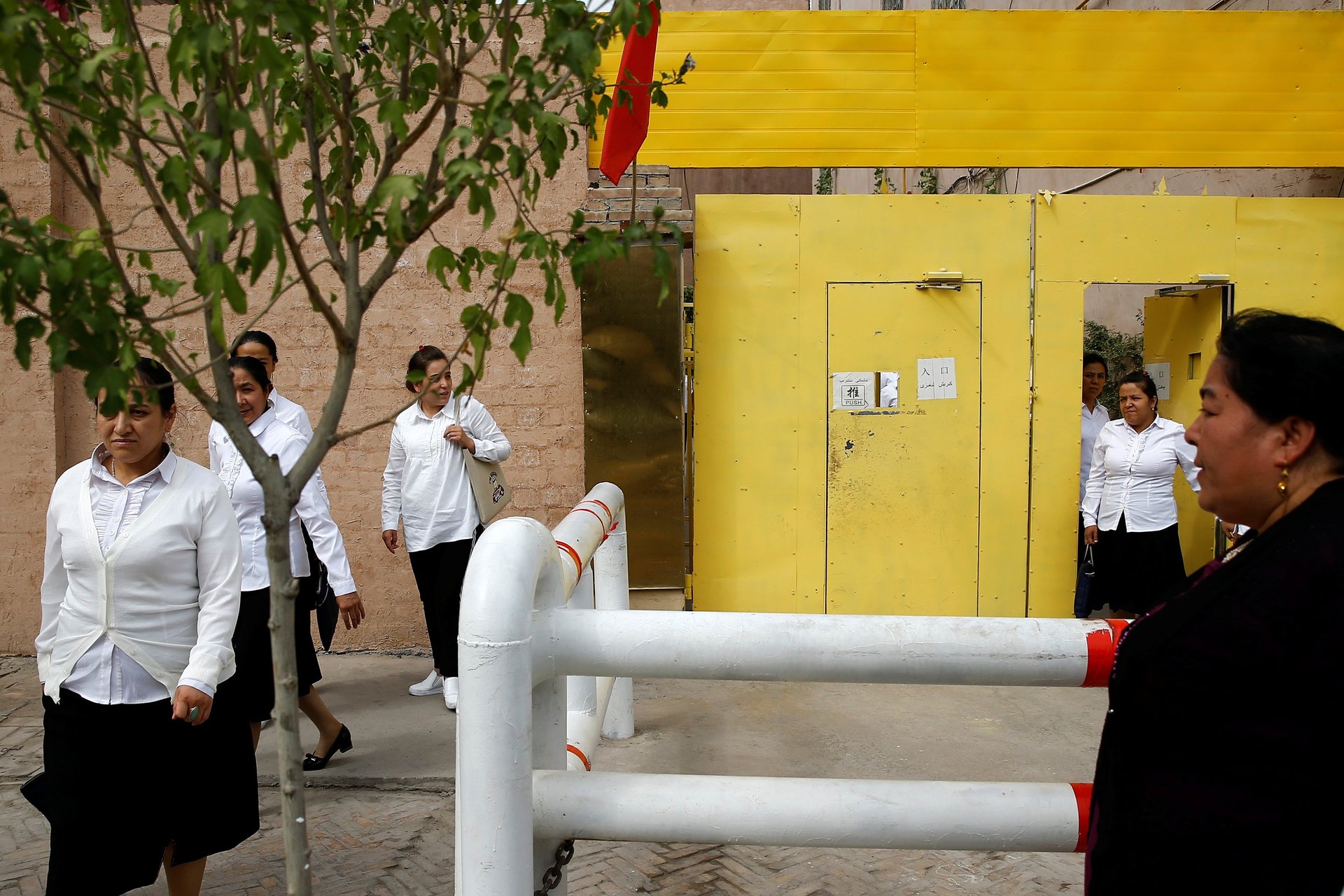China praised itself for saving Uyghur women from being “baby-making machines”
In an article yesterday, China Daily, Beijing’s state-owned English-language propaganda newspaper, shared what it thought were praiseworthy results of a research report on the demographics of Xinjiang.


In an article yesterday, China Daily, Beijing’s state-owned English-language propaganda newspaper, shared what it thought were praiseworthy results of a research report on the demographics of Xinjiang.
The report by the Xinjiang Development Research Center, part of state-run think tank Chinese Academy of Social Sciences, concluded that government policies there had eradicated extremism and “emancipated” the minds of Uyghur women such that they are “no longer baby-making machines,” noted the China Daily piece. The article evidently struck a positive note among Chinese government officials, with the Chinese embassy in the US tweeting out the link and highlighting the research findings regarding Uyghur women’s reproductive health.
The line that the Chinese government is promoting is particularly jarring given that researchers and journalists have documented the widespread detentions of Uyghur Muslims since at least 2017 under what the state has called an anti-extremism program. The idea that Uyghur women can freely make reproductive choices in such a scenario is highly questionable—especially weighed against China’s long history of coercive family planning under the one-child policy. But added to that, despite the difficulty of reporting on what’s happening in Xinjang, first-person accounts and official documents suggest the state is forcing stark reproductive choices on Uyghur women.
In 2019, some women who fled the region told accounts of having been forced to have unwanted sterilizations. And last year Adrian Zenz, a German researcher on Xinjiang, published detailed research alleging that China has systematically forced women to have birth-control devices inserted or to undergo sterilizations, and even forced abortions. Zenz estimates the measures have drastically slashed birth rates among Uyghurs and other ethnic minorities in Xinjiang.
Zenz, who is a senior fellow in China studies at the Washington-based Victims of Communism Memorial Foundation, cited official budget documents that show sterilizations rising sharply over just two years in the region, while declining elsewhere in the country. The result was a steep drop in birth rates across Xinjiang at a rate that outstripped the national average: a drop of 24% in the region between 2018 and 2019, compared to to 4.2% nationwide, according to government statistics.
The growing body of evidence and testimonies of forced sterilizations endured by Uyghur women in China has prompted more researchers to describe what is happening in Xinjiang as a genocide. Under the United Nations’ definition of the term, the forced suppression of births within a specific population is one of five acts that constitute genocide.
China has long refuted allegations that it is engaging in any type of repression in Xinjiang. It denies the existence of detention camps there, or the use of forced labor. It has said that it’s providing Uyghurs and ethnic minorities with vocational training opportunities aimed at countering extremism and terrorism.
When it comes to reproductive rights, it has denied suppressing births, and said that it is educating Uyghur women about family planning and offering state-subsidized contraceptive measures that individuals can take voluntarily. Officials say they are now bringing policy in Xinjiang in line with what is applied nationally. Under China’s one-child policy, which was scrapped in 2015 to allow all couples to have two children, certain exemptions were made for groups including rural families, ethnic minorities, and those whose parents were single children.
Separately, Chinese state media has repeatedly attacked Zenz, discrediting him as “anti-China” and a “swindler” posing as an academic.
Activists have been pressing the International Criminal Court to open an investigation into China’s alleged atrocities in Xinjiang, but prosecutors in the Hague last month said they could not proceed in the investigation of Beijing’s repressive policies there because China is not a signatory to the court.
In response to an inquiry from an ArsTechnica reporter on whether the Chinese embassy’s tweet praising the government’s birth control policies in Xinjiang violates Twitter’s rules prohibiting hateful conduct, the platform said it does not violate company policy.